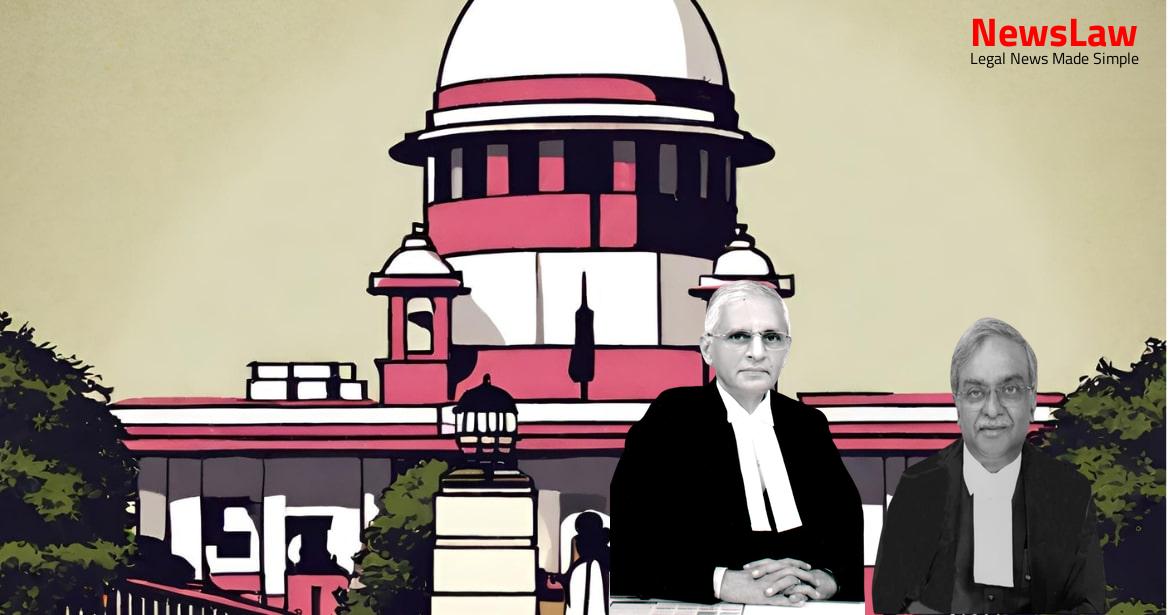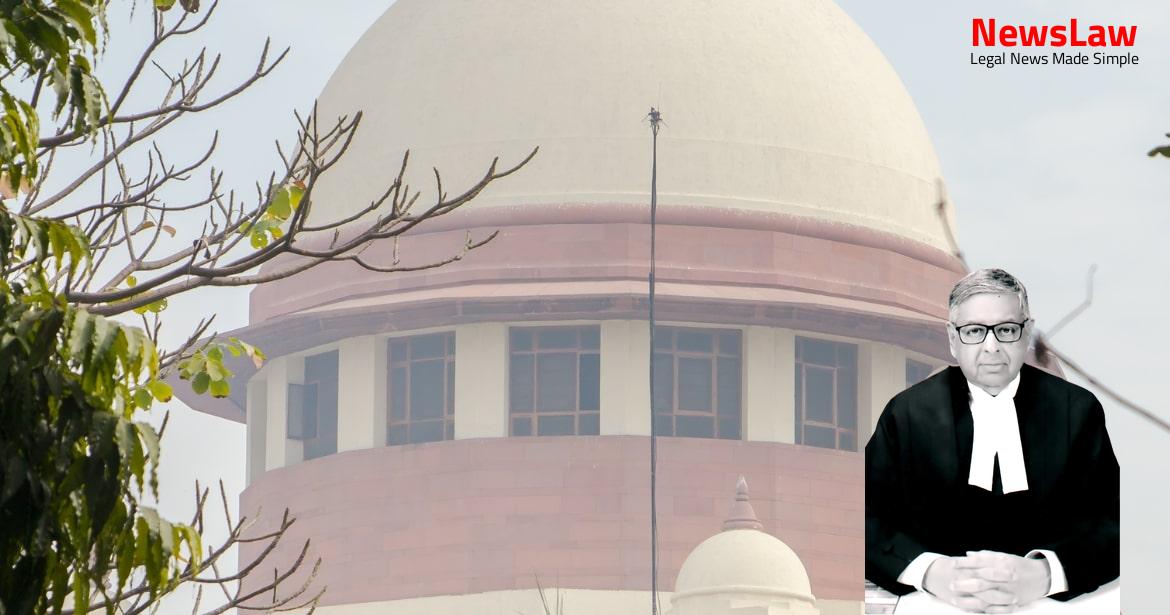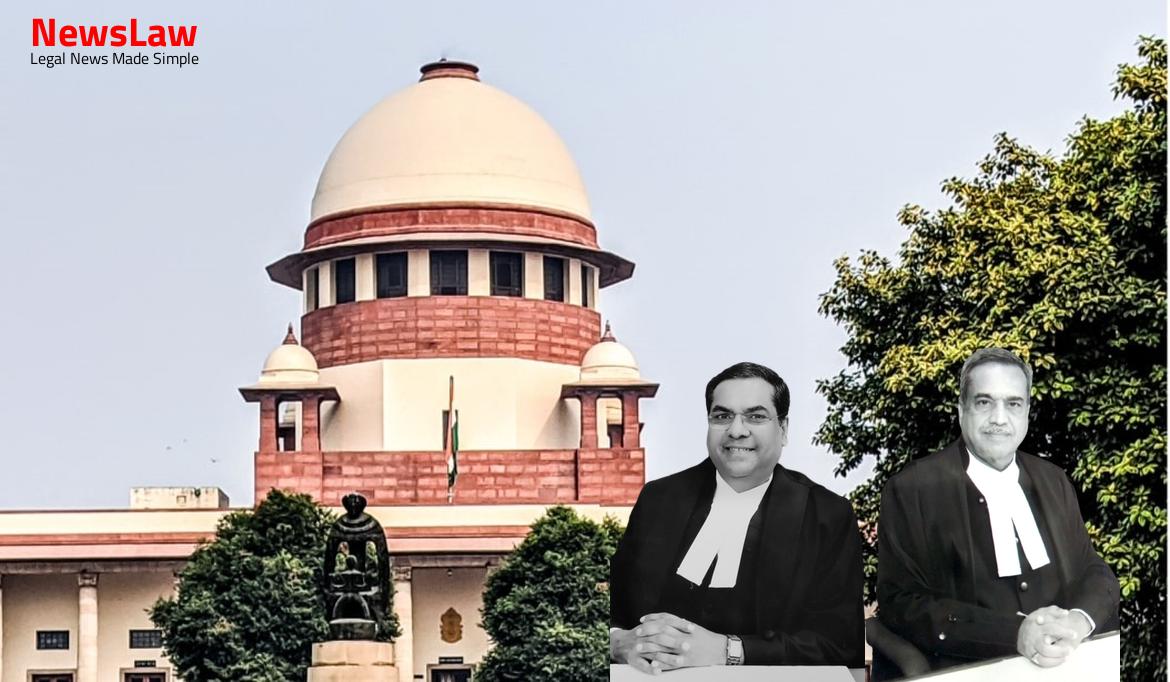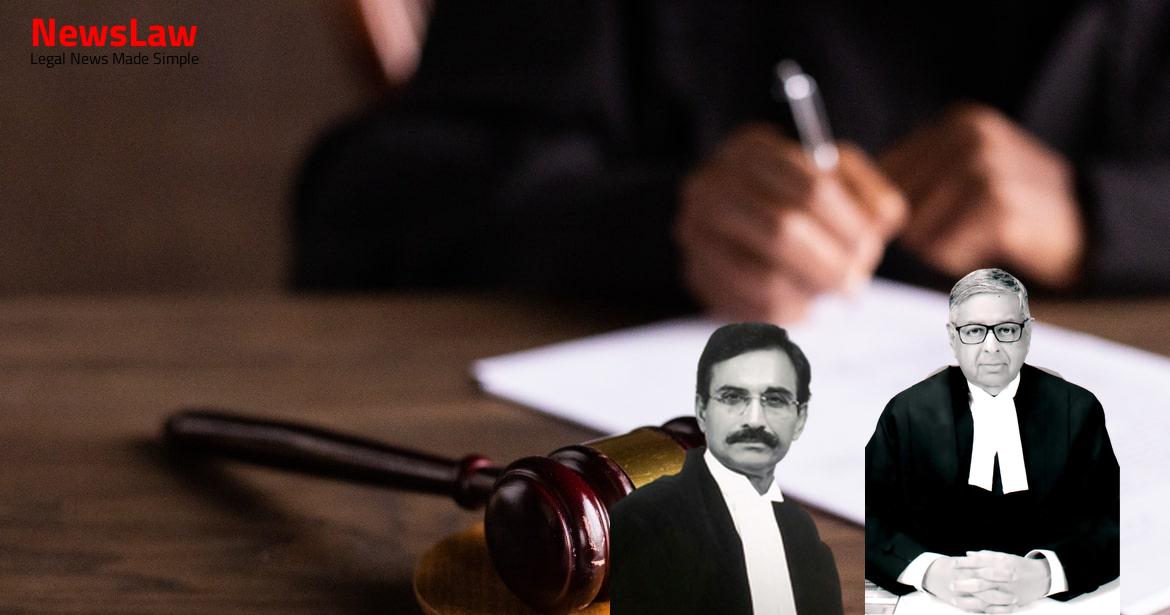Explore the intricate legal analysis conducted by the court in a significant case concerning promotion eligibility criteria. The case delves into the authority and limits of the Executive Council in setting and modifying promotion procedures, highlighting the importance of adhering to prescribed rules for consistency and fairness in employment promotions. Follow the detailed legal insights in this blog post to understand the significance of established procedures in government sector governance and administration.
Facts
- Advertisement/Notification issued by the Banaras Hindu University for promotion to Class-III did not originally include an interview in the eligibility conditions as per the Manual.
- The Board of Examiners later introduced an interview as part of the selection criteria, violating the original eligibility conditions.
- The eligibility conditions, duly approved by the Executive Council, were not disputed by the BHU or the selected candidates.
- The merit list for promotion was based on a typing test, written test, and interview, with specific marks allocated for each.
- 14 candidates were selected and issued appointment letters based on the recommendations of the Board of Examiners.
- Eligibility for promotion to Junior Clerk included five years of service and passing the matriculation examination or equivalent.
- A specific typing test speed requirement and provision for reversion if not passed within two years were also mentioned in the eligibility criteria.
- The learned Single Judge found that the Board of Examiners made errors in awarding marks and preparing the merit list for selections.
- The orders dated 05.06.2007 and 02.07.2007 were quashed, along with the appointments of respondent Nos. 3 to 16 on Class-III posts.
- The BHU was directed to conduct fresh selections for promotion to Class-III posts within three months in accordance with the rules and observations mentioned.
- A cost of Rs. 50,000 was awarded to the petitioners.
- The writ petition was allowed, and the appointments were quashed.
Also Read: Balancing Private Grievances and Public Interests
Arguments
- The Board of Examiners was not authorized to alter the procedure for promotion as per para 6.4 of the manual.
- Only the Executive Council had the authority to amend or modify the procedure/eligibility under para 6.4 of the Manual.
- Even the BHU’s counsel acknowledged that the Board of Examiners lacked the power to change the eligibility conditions or procedure in para 6.4.
Also Read: Quashing of Criminal Proceedings Based on Insufficient Allegations
Analysis
- The Division Bench allowed the Special Appeals and set aside the Single Judge’s judgment.
- The eligibility procedure highlighted seniority as the basis for promotion subject to passing the written test.
- Several judgments were relied upon by the Division Bench to support their decision.
- The Division Bench ruled that the principle of estoppel is not above the law.
- Manual approved by the Executive Council specified promotion criteria for Class-IV employees.
- The Board of Examiners made unauthorized changes to the promotion process, introducing new criteria like an interview and merit list.
- The Court found discrimination against the petitioners in the selection process.
- The Division Bench approved the reasoning of the Single Judge against the Board of Examiners’ actions.
- It was emphasized that rules and procedures cannot be changed arbitrarily during promotions.
- The Division Bench’s decision regarding the appellants challenging the selection process was criticized.
- The authority of the Executive Council in laying down promotion procedures was reaffirmed.
- In the case of Chandrashekharan, no violation of statutory rules or eligibility was alleged by unsuccessful candidates.
- The objection in Utkal University regarding the selection committee composition does not apply to the present case.
- Chandra Prakash Tiwari case involved objection to the interview process being unfair, not applicable here.
- In K.A. Nagmani case, no violation of statutory rules was alleged for the unsuccessful candidates.
- Unfair interview process objection was raised by the unsuccessful candidate in Madan Lal case.
- Selection committees cannot lay down criteria for selection unless authorized by rules under Article 309.
- The tribunal’s jurisdiction does not extend to questioning executive decisions in matters of recruitment.
- No administrative instruction was issued in the instant case regarding selection criteria.
- Selection committees do not have inherent jurisdiction to establish selection norms.
- Rule-making function under Article 309 is legislative, not executive.
- Selection committees cannot legislate rules of selection as it is a legislative function.
- ASRB had no jurisdiction to add to required qualifications implicitly.
- Selection committees cannot set their own standards in addition to prescribed rules.
- The power to make rules regulating the conditions of service of persons appointed on Government posts was discussed.
- The importance of having rules in place for maintaining consistency and fairness in the conditions of service was highlighted.
- The necessity of rules to ensure proper governance and administration in the government sector was emphasized.
- The authority to create and enforce rules for government posts was recognized as crucial for effective management.
- The need for clear guidelines to govern the service conditions of government employees was underlined.
- Rules play a significant role in standardizing and regulating the terms of employment for individuals in government positions.
- If the law stipulates a specific manner of action, it must be strictly adhered to.
- Failure to adhere to the prescribed manner renders the action non-existent in the eyes of the law.
- Based on the reasons outlined, the appeals should be allowed.
Also Read: Reversal of Acquittal: High Court Convicts Accused in Murder Case
Decision
- Appellants who have retired and those who have died post-retirement will have their benefits extended to their legal heirs as entitled by law.
- The Division Bench’s judgment dated 29.07.2016 is set aside and the Single Judge’s judgment dated 26.08.2011 is restored.
- All eligible appellants will receive all consequential benefits for the promotions as per existing rules and the Single Judge’s directions.
Case Title: KRISHNA RAI (DEAD) Vs. BANARAS HINDU UNIVERSITY THROUGH REGISTRAR (2022 INSC 647)
Case Number: C.A. No.-004578-004580 / 2022



